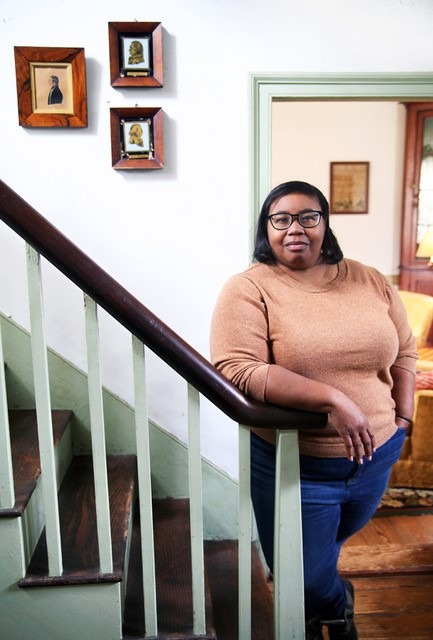Class Highlight: Debra Freeman on the Legacy of Black Herbalism
The Garden is excited to welcome back food anthropologist, podcaster, and writer Debra Freeman, who will be leading a new class on the Legacy of Black Herbalism at 6:00 p.m. on Wednesday, Oct. 4th. “African American herbalism is often overlooked, but it is absolutely fascinating,” Freeman says. “When enslaved Africans were brought to this country, they had to figure out how to replicate the herbal remedies they’d made in West Africa as well as create new ones, essentially making their own medicines.”
Wormwood, for example, was turned into an anti-parasitic tea to cure worms, a plague among enslaved children due to poor living conditions. Basil was used to treat a host of ailments, from cold symptoms to itchy bug bites, while cotton was utilized in women’s health. “They were so smart and innovative, knowing what plants to use for which problem, as well as when treatments would be most effective,” says Freeman. “The expertise they developed is especially impressive considering it was a capital offense in Virginia and South Carolina for enslaved people to teach others about herbal medicine.”
In addition to sharing the rich history of Black herbalism during the class, Freeman will guide visitors through the Garden’s collection, stopping to identify some of the plants and herbs used for a variety of purposes in enslaved communities, like sassafras, black walnut, witch hazel, and dogwood. Freeman hopes attendees will gain a new appreciation for their own backyard and better understand the role plants play in holistic medicine. “I also want to give a voice to the Black herbalists of the 1800s who were largely written out of history,” she says. “The work they did was so important and it’s pretty profound to think that their knowledge of medicinal horticulture may have even saved an ancestor of mine, may have led to me being here today.”
Sign up here to attend the Legacy of Black Herbalism with Debra Freeman. We believe that all adults in our community should have access to plant-based, nature-focused learning opportunities and offer several pricing tiers so you can register at the amount you’re able to pay. Thank you for your contribution.
